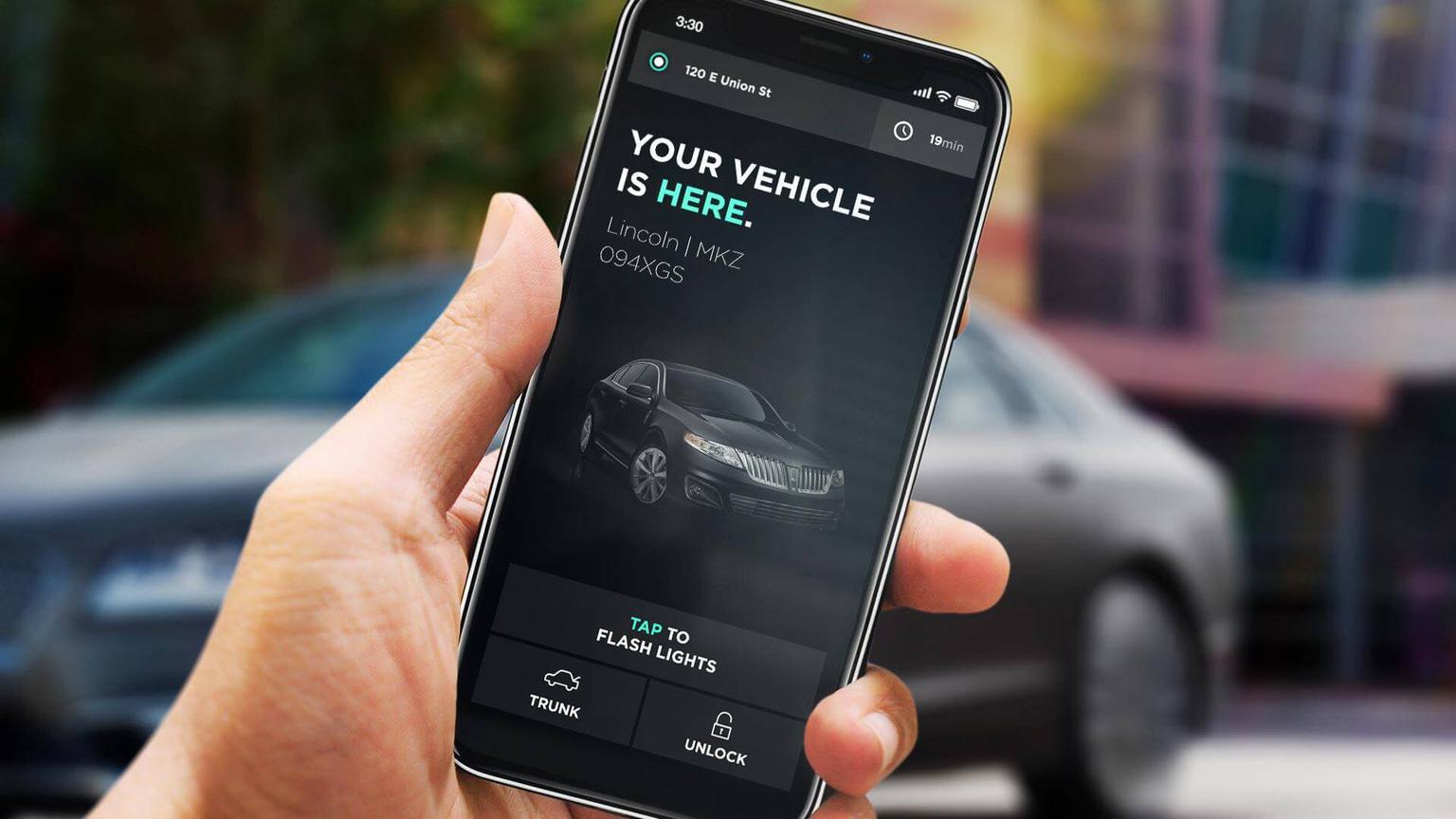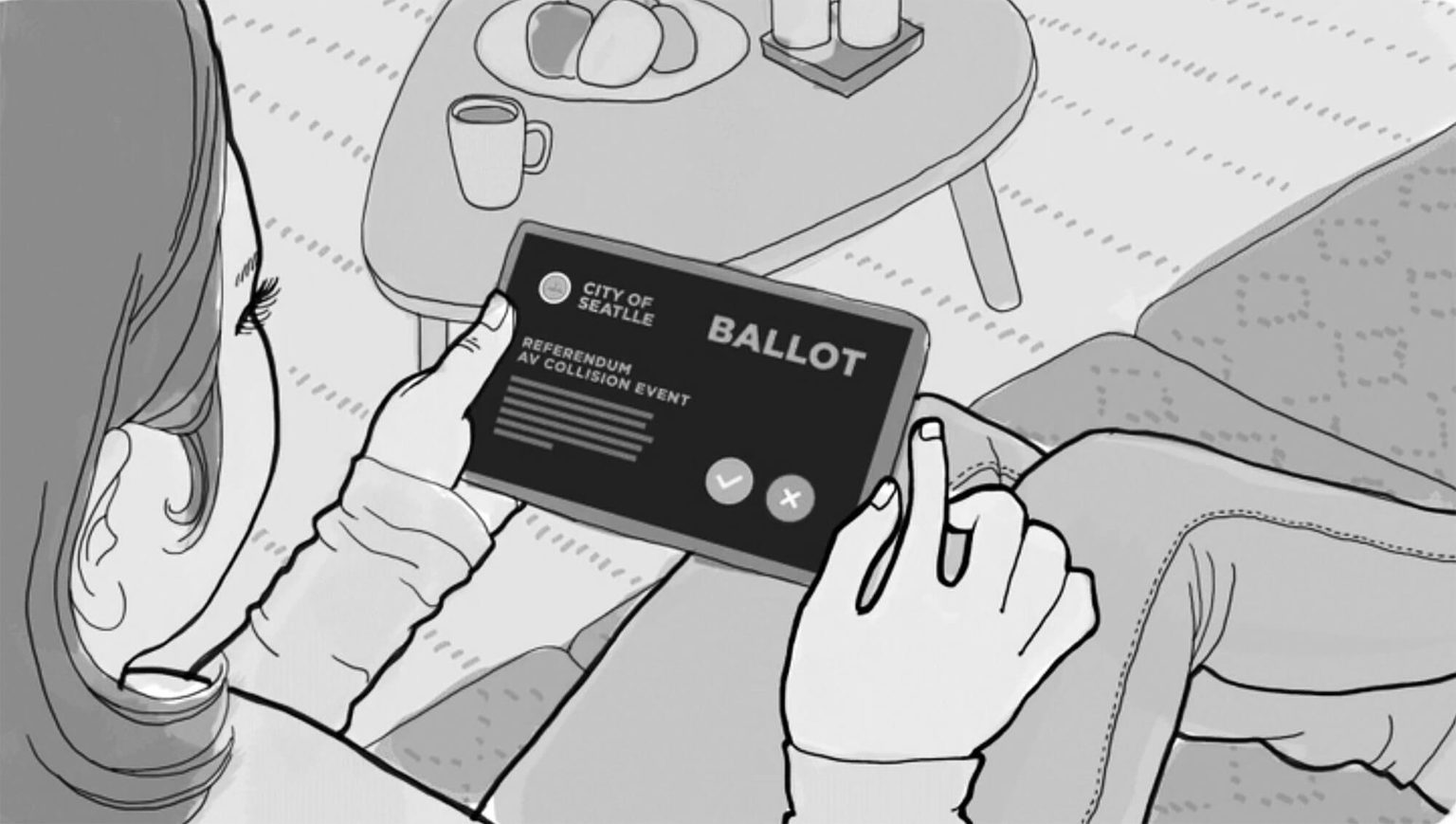
Mobility

What should an autonomous car do when it has to choose between a driver's life and a pedestrian's life?This was the question Fast Company asked us to answer as part of their conceptual design series, Provocation.
For the past five years, we’ve worked across public and private sectors to help define the future of smart cities and the critical role new mobility will play in growing urban centers. From designing transportation networks to urban air mobility solutions, big hairy challenges are our favorite to tackle. Here we take on one of AI's biggest ethical conundrums.
Concept No. 1
Some dilemmas facing autonomous cars will be unavoidable, requiring that we imbue them with our morality. Because morals and ethics shift over time and geography, self-driving cars will be designed to adopt the ethics of their context. These ethics will not be in the hands of OEMs or insurance companies. Rather, they will be determined by and therefor represent the populace. When moving across borders, an autonomous car will adorn itself with the according laws and ethics and articulate this change to its passengers. In the avoidable dilemma, some populations may prioritize pedestrians whiles others will prioritize the well-being women and children while others opt to leave it to a random number.
The citizen-determination of ethical programming at scale will be a critical piece of a larger AI strategy.
Expect these moral codes to be duly contentious, given shorthand names, and common parlance—similar to policy shorthand such as “Don’t Ask, Don’t Tell”, The Paris Agreement, No Child Left Behind, and so on. This citizen-determination of ethical programming at scale will be a critical piece of a larger strategy in an AI future. Otherwise, society will risk a dystopian future in which there are two classes of people: the one controlling the algorithms and the other, subjected to algorithm.
Concept No. 2
Autonomous vehicles cannot be the only agent looking out for pedestrians. Cities will as well. Existing monitoring infrastructure, such as CCTV cameras, will be outfitted with computer vision systems to parse pedestrian telemetry. This data will be provided in real-time to self-driving cars in an effort to improve parity with what is being shared by other autonomous vehicles to improve calculations, preventing difficult ethical dilemmas. Additionally, traffic systems will utilize pedestrian telemetry alongside autonomous vehicle telemetry to bolster equality in the flow of foot and road traffic. This will be part of a larger strategy that uses the onset of the autonomous car as way to undo the current car-centric urban experience.
The Illustrations by Rachel Simons & Churu Yun